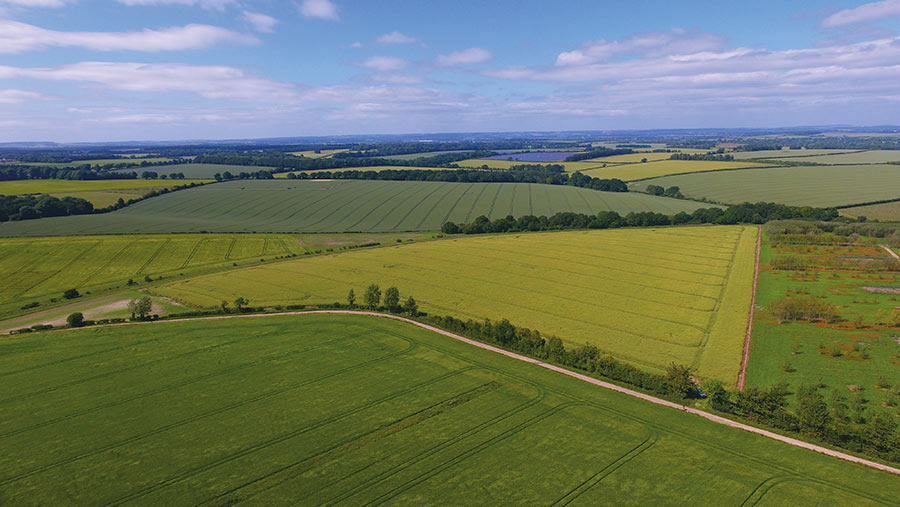Leckford Estate to start regenerative farming trials for Waitrose
 © Paul Hewitt
© Paul Hewitt Waitrose has embarked on a project to introduce regenerative farming and use more sustainable energy on its Hampshire estate to help the supermarket meet its pledge of net-zero emissions by 2035.
The 809ha farm on the Leckford Estate, near Stockbridge, will be used to trial farming methods that improve soils and increase biodiversity.
Energy projects will also be developed, to replace fossil fuels with biomethane to power tractors and hydrogenated vegetable oil to run food processing.
See also: Regenerative farmer seeks businesses to form sustainable community
All the findings will be shared with Waitrose farmers and suppliers as well as the wider industry.
Climate change
James Bailey, executive director of Waitrose, said using the estate’s farm to research and develop techniques that will manage the land better for nature and the environment would be pivotal in helping the supermarket address climate change.
“Whether it’s planting trees to promote biodiversity, or reducing water usage to protect resources, or using regenerative soil practices that help sequester carbon, our focus will be on biology rather than chemistry,” Mr Bailey wrote in a letter to Waitrose customers.
“Leckford will be an experiment in farming best practice, one that we hope will pave the way to genuine solutions to help conserve our soil, air and water for future generations and, importantly, help us to deliver our 2035 commitment.”
The supermarket announced in February it would be stopping milk production at the estate to make way for a new beef unit and revert land back to growing crops – primarily wheat, barley and oilseed rape.
Regenerative project
This mixed arable and livestock farming is a central part of the regenerative project, using the cattle to fertilise soils and introducing herbal leys, which will be left for three-and-a-half years and grazed by the livestock as part of the rotation.
The other key area of research is around sustainable energy and capturing methane to use as biofuel.
The farm is investing in a biomethane plant to capture and harvest “fugitive methane” that escapes into the atmosphere from manure and food processing by-products.
Waitrose says this will save more than 500t of carbon a year, with the biomethane captured converted into an eco-friendly fuel alternative to power tractors.
